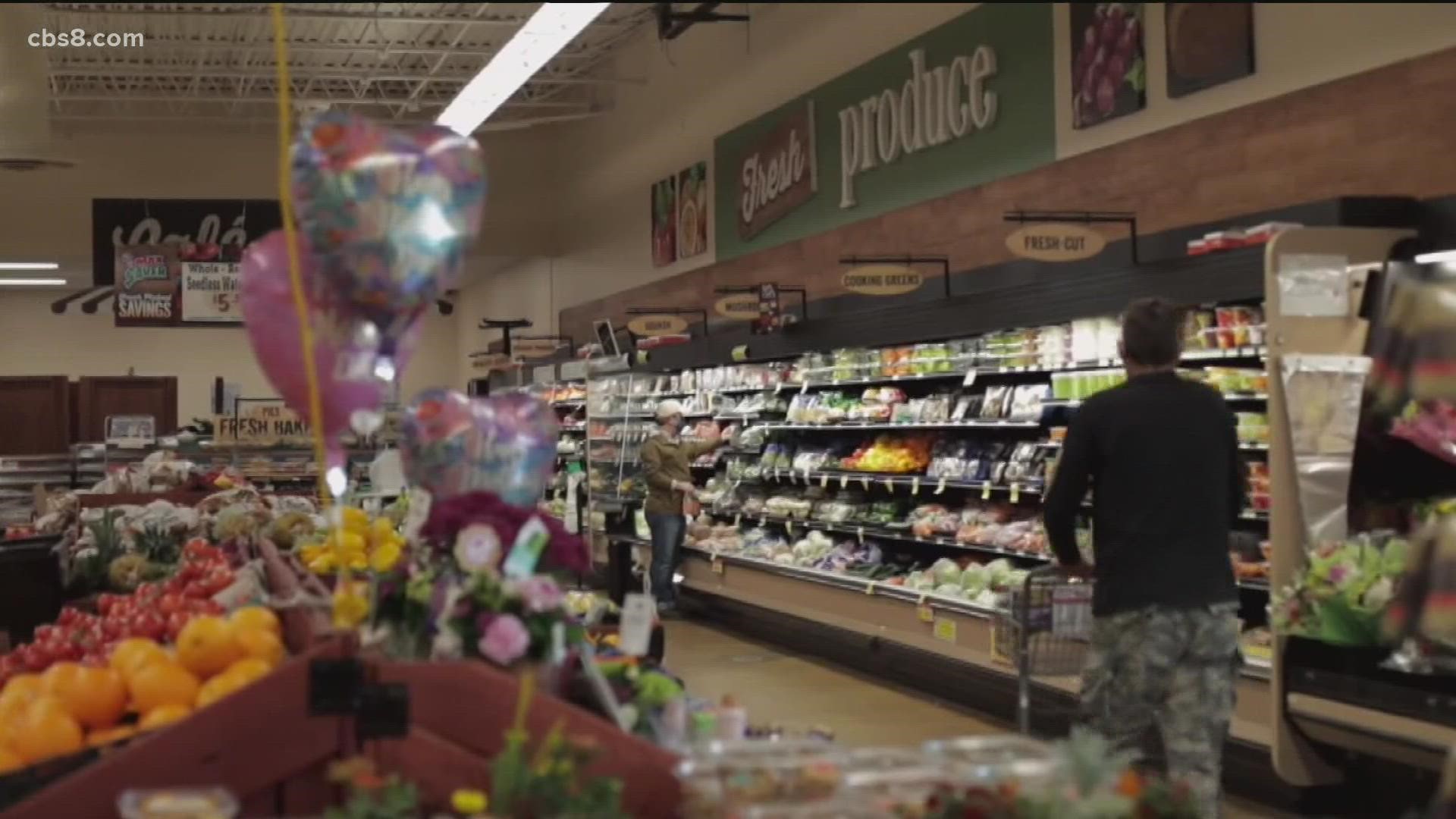SAN DIEGO, Calif — It was just a few months ago that Senate Bill 1383 became law, requiring businesses and food suppliers to recover edible food that would otherwise go to landfills and instead pass it on to food rescue organizations, like Feeding San Diego.
The organization is happy to report that since the bill became law, they have onboarded 15 food suppliers to donate their remaining edible food (that would otherwise go to landfills) and have seen about a 25% increase in edible food donations each month.
“It’s top of mind now in all of these grocery stores," said Feeding San Diego's Chief Supply Chain Officer, Patty O'Connor. "In the past, perhaps maybe the produce and the meat department were the ones that would set aside product for us. Now, all the departments are getting on board. So we are seeing an uptick in the variety of that we're able to rescue. Having it top of mind has really helped in the overall amount of pounds rescued.”
And that’s great news – more food going to residents of San Diego that might otherwise go hungry. But it also means that food won’t have the opportunity to rot in a landfill and emit harmful greenhouse gasses in the process.
When talked about the food suppliers that are now participating, O'Connor added, "It does help them out because by law they're now not allowed to throw away edible food. So, by us coming to pick up the edible food, it does help them out. It helps everybody out, not just the grocery stores but it helps our friends and neighbors who need a little extra food,"
With more and more companies on board, Feeding San Diego is then able to connect with more distribution partners around the county to get food to people's tables before it goes bad.
CalRecycle says beginning in April, $60 million in grant money will go to jurisdictions that apply and pass an enforcement ordinance by the start of the month. Another round of grants will go out in the fall as well.
O’Conner says in times like these, where people are often stretched their paycheck to go further, these changes are of huge importance.
“A lot of people are deciding and having to choose between putting gas in the car and what types of food they can bring home to their family," said O'Connor. "So, if there’s extra food out there, which we know there is, we need to be saving that and distributing it to people in need.”
You can read more about the passage of Senate Bill 1383 in our previous article here.
Feeding San Diego says they're always looking to onboard any food suppliers (grocery stores, wholesale distributors, etc.) to get in compliance with the new law. You can contact them directly at https://feedingsandiego.org/.
WATCH RELATED: Feeding San Diego | Hunger Action Hero Art Contest (March 2022)

